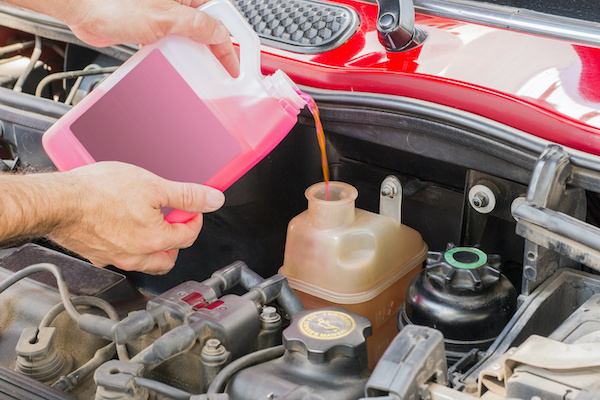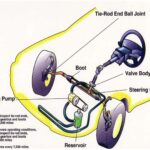
How to Check Transmission Fluid in a Toyota Corolla

- Introduction
- Why Checking Transmission Fluid Matters
- Signs Your Transmission Fluid Might Need Checking
- Tools and Supplies You’ll Need
- Safety First: Preparing Your Vehicle
- How to Locate the Transmission Dipstick
- Step-by-Step Guide to Check Transmission Fluid
- What the Transmission Fluid Should Look Like
- How to Top Off Transmission Fluid
- When to Replace Instead of Refill
- Checking Fluid on Newer Corolla Models Without a Dipstick
- Common Mistakes to Avoid
- How Often Should You Check Transmission Fluid?
- Professional Help vs. DIY
- Conclusion
- FAQs
Introduction
Let’s face it—nobody likes dealing with car trouble. One of the easiest ways to keep your Corolla running smoothly is to keep an eye on its transmission fluid. Think of transmission fluid as the lifeblood of your car’s gearbox. If it’s low or dirty, your vehicle can start acting up fast.
The good news? Checking it is easier than you might think, and you don’t need to be a certified mechanic to do it. Let’s break down exactly how to check the transmission fluid in your Toyota Corolla step by step.
Why Checking Transmission Fluid Matters
Preventing Costly Repairs
Ignoring low or dirty transmission fluid is like ignoring a slow leak in a boat—you might be fine at first, but eventually, you’ll sink. Regular checks can help you catch problems early before they turn into expensive repair bills.
Ensuring Smooth Gear Shifts
Transmission fluid lubricates and cools your transmission system. If it’s at the right level and in good shape, your gears shift seamlessly. If it’s not, expect sluggish performance or jerky shifts.
Extending Transmission Lifespan
Your transmission is one of the most expensive parts of your vehicle. Proper fluid maintenance can add years to its life, saving you thousands of dollars in the long run.
Signs Your Transmission Fluid Might Need Checking
Slipping Gears
If your Corolla suddenly slips out of gear or struggles to stay in one, low fluid levels might be the culprit.
Delayed Acceleration
Press the gas pedal and feel a hesitation? That lag could be your transmission crying out for fresh fluid.
Strange Noises or Smells
Whining, grinding, or a burnt smell isn’t normal. These are classic red flags that your fluid might be contaminated or low.
Tools and Supplies You’ll Need
Before you get started, gather these simple tools:
- Clean rag or paper towels
- Funnel (if you need to add fluid)
- Correct type of transmission fluid (check your owner’s manual)
- Gloves (optional but recommended)
- Flashlight (for better visibility)
Safety First: Preparing Your Vehicle
Park on a Level Surface
For an accurate reading, make sure your car is parked on flat ground.
Warm Up the Engine
Transmission fluid expands when it’s warm. Run your engine for 5–10 minutes so it reaches normal operating temperature.
Engage the Parking Brake
Safety first—keep the car in “Park” and make sure the parking brake is engaged to prevent any unexpected movement.
How to Locate the Transmission Dipstick
Where to Find It in Different Corolla Models
In many older Toyota Corolla models, the transmission dipstick is usually found near the back of the engine bay, toward the passenger side.
You may be interested in reading How to Add Power Steering Fluid to a Toyota Corolla
How to Add Power Steering Fluid to a Toyota CorollaWhat It Looks Like
It’s typically a small, loop-handled stick labeled “TRANS” or “ATF.” If you can’t find it, check your owner’s manual—some newer models don’t have a dipstick at all.
Step-by-Step Guide to Check Transmission Fluid
Step 1: Start the Engine
Leave your engine running and make sure it’s fully warmed up.
Step 2: Shift Through the Gears
With your foot on the brake, shift slowly through each gear—P, R, N, D—and then back to Park. This circulates the fluid through the transmission.
Step 3: Remove and Wipe the Dipstick
Pull out the dipstick carefully. Use your rag to wipe it clean completely.
Step 4: Reinsert and Check the Level
Put the dipstick all the way back in, then pull it out again. The fluid level should be between the “Low” and “Full” marks.
Step 5: Inspect Fluid Condition
Besides checking the level, look closely at the color and smell of the fluid. This can tell you a lot about your transmission’s health.
What the Transmission Fluid Should Look Like
Normal Fluid Appearance
Fresh or healthy transmission fluid is usually bright red and clear. It should also have a slightly sweet smell.
Warning Signs of Bad Fluid
Brown or black fluid, a burnt smell, or particles in the fluid are all bad signs. If your fluid looks like this, it might be time for a flush or a visit to a mechanic.
How to Top Off Transmission Fluid
Choosing the Right Fluid
Not all fluids are created equal. Check your owner’s manual for the exact type your Corolla needs—using the wrong kind can cause serious damage.
Adding Fluid Safely
Insert a funnel into the dipstick tube and pour in small amounts of transmission fluid. Recheck the level often to avoid overfilling.
Avoiding Overfilling
More is not better. Overfilled transmission fluid can cause foaming, overheating, and shifting problems.
When to Replace Instead of Refill
Burnt Fluid
If your fluid is dark and smells burnt, topping off won’t fix the problem. A full fluid change or flush may be needed.
Leaks and Low Levels
If you’re constantly adding fluid, you might have a leak. Check under the car for red or brown puddles.
You may be interested in reading How to Add Power Steering Fluid to a Toyota Corolla
How to Add Power Steering Fluid to a Toyota Corolla How to Check Ford Focus Transmission Fluid
How to Check Ford Focus Transmission FluidChecking Fluid on Newer Corolla Models Without a Dipstick
Sealed Transmission Systems Explained
Many modern Corolla models come with sealed transmissions, meaning there’s no dipstick to check manually. This isn’t a flaw—it’s designed to reduce the need for frequent checks.
How to Check with a Service Port
You can check the fluid level using the service port underneath the car, but this usually requires lifting the vehicle and specialized tools. If you’re not comfortable doing this, it’s best to visit a mechanic.
Common Mistakes to Avoid
Checking with a Cold Engine
Fluid expands when warm. Checking it cold can give you a false low reading.
Using the Wrong Fluid
The wrong fluid can damage seals and lead to transmission failure.
Ignoring Warning Signs
That slight delay in shifting today can turn into a transmission overhaul tomorrow. Don’t ignore the signs.
How Often Should You Check Transmission Fluid?
A good rule of thumb is to check your transmission fluid every month or at least every oil change. Regular checks help you spot issues before they escalate.
Professional Help vs. DIY
If your Corolla has a sealed transmission or you notice warning signs like burnt fluid, odd smells, or leaks, it’s wise to let a professional handle it. But for regular checks and top-offs, DIY works perfectly fine and can save you money.
Conclusion
Checking the transmission fluid in your Toyota Corolla isn’t rocket science—it’s a simple habit that can save you from major headaches down the road. A few minutes of your time today can prevent thousands of dollars in repairs tomorrow. So, grab that rag, pop the hood, and give your transmission the attention it deserves.
FAQs
1. How often should I change transmission fluid in a Toyota Corolla?
Most experts recommend changing it every 60,000 to 100,000 miles, but always check your owner’s manual for the manufacturer’s specific guidance.
2. Can I use any transmission fluid for my Corolla?
No, always use the type recommended in your owner’s manual. Using the wrong fluid can damage your transmission.
3. What if my Corolla doesn’t have a transmission dipstick?
Many newer models use sealed systems. You’ll need to check the fluid through a service port or have a mechanic do it.
4. Is it safe to drive with low transmission fluid?
Not for long. Driving with low fluid can cause slipping, overheating, and permanent transmission damage.
5. What color should good transmission fluid be?
Healthy transmission fluid is bright red and clear. If it’s brown or smells burnt, it’s time for maintenance.
 How to Add Power Steering Fluid to a Toyota Corolla
How to Add Power Steering Fluid to a Toyota Corolla How to Check Ford Focus Transmission Fluid
How to Check Ford Focus Transmission Fluid Oil Reset Procedure for Mitsubishi Mirage (2014-2023)
Oil Reset Procedure for Mitsubishi Mirage (2014-2023)If you want to know other articles similar to How to Check Transmission Fluid in a Toyota Corolla you can visit the category Tips.
Leave a Reply







More content of your interest